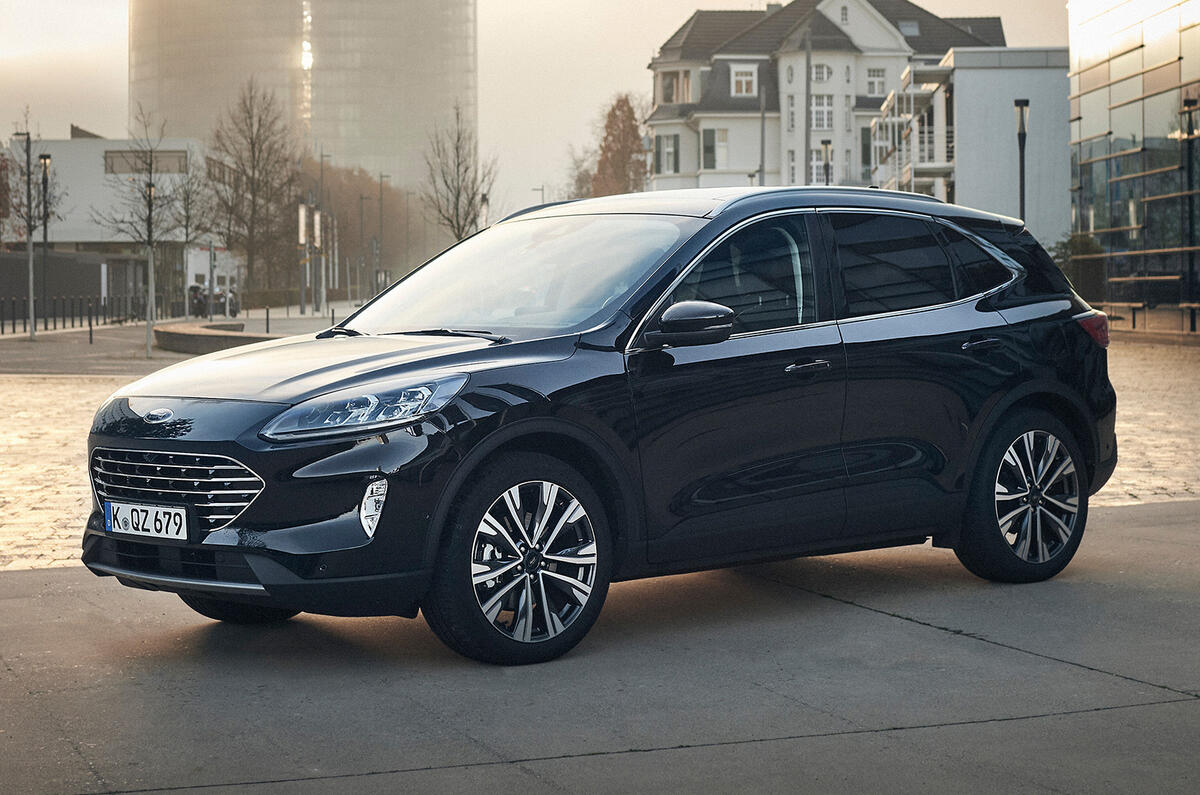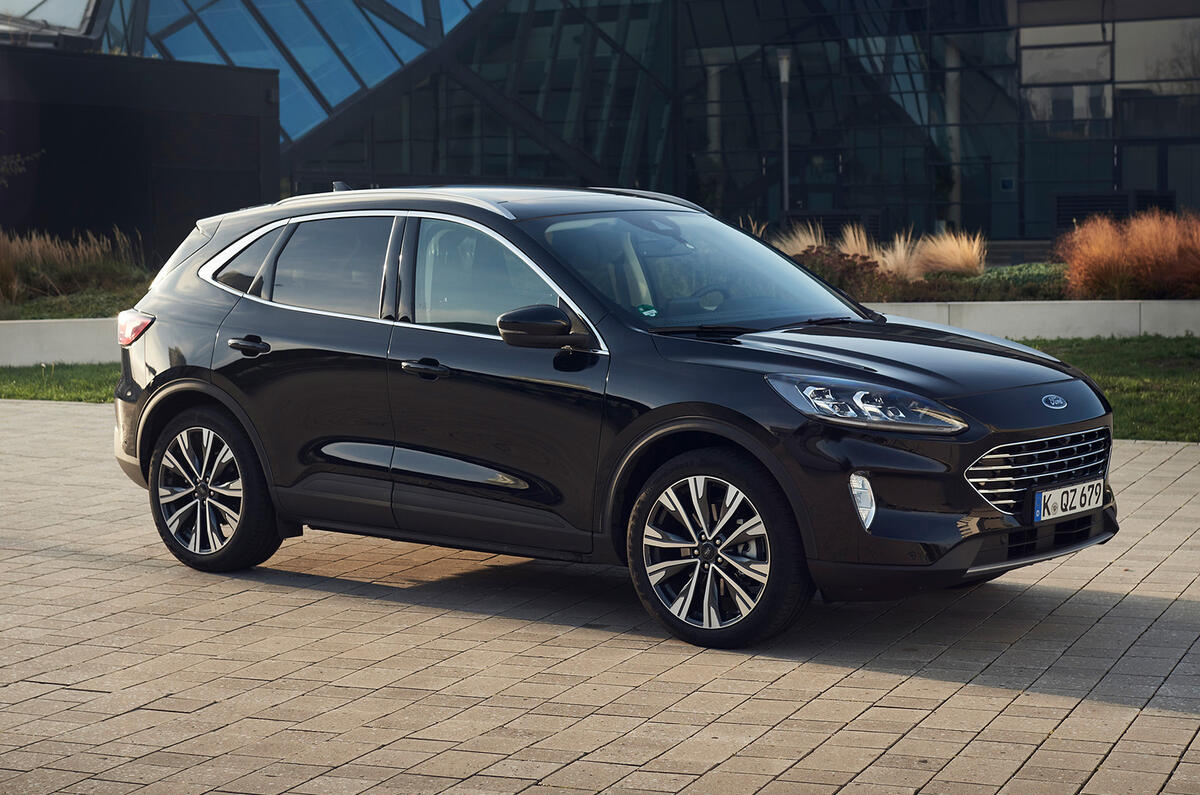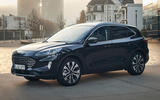Ford has released a non-plug-in hybrid version of its popular Ford Kuga SUV, complementing the existing Kuga Plug-In Hybrid.
Delivering a claimed total range of 600 miles, the Kuga Hybrid includes “fuel efficiency and driving range to rival diesel, and the effortless refinement of charging cable-free, pure-electric driving,” according to Ford.
The latest Kuga mates a ‘self-charging’ 1.1kWh battery with a 2.5-litre Atkinson-cycle petrol engine, which together enable a claimed 48.7mpg and a WLTP-certified 130g/km of CO2 emissions.
Its 600-mile overall range is more than 30% greater than that of the Kuga Plug-In Hybrid, although it doesn’t offer anything like the same 35-mile electric-only range of that car.
Generating 187bhp, the hybrid powertrain allows the new Kuga Hybrid to sprint from rest to 62mph in 9.1sec, helped by Ford’s latest power-split transmission, which is said to adjust ratios for optimum performance.
A simulated gearshift function automatically regulates revs as the car’s speed changes, reducing the ‘rubber band’ effect associated with traditional continuously variable transmissions.

Ford said the Kuga Plug-In Hybrid targets customers who want an electric powertrain but have “limited access to external charging solutions at home or places of work”.
The Kuga Hybrid is available in three trim levels, spanning the entry-level ST Line Edition, the mid-tier ST Line X Edition and the range-topping Vignale.
Following the recently revealed electric Ford E-Transit and the launch of the electric Mustang Mach-E, the Kuga Hybrid is the latest of 17 new electrified vehicles that Ford plans to introduce before the end of 2021.
The Kuga Hybrid is currently in production at Ford’s factory in Valencia, Spain. It is available to order now, with prices starting from £33,600.















Join the debate
Add your comment
Toyota RAV4’s a better bet
Personally, if I was going to buy a hybrid SUV, I'd buy a Toyota RAV4. Toyota has over 2 decades of experience making hybrid vehicles, their cars come with a 5 year warranty, and they're fairly inexpensive on finance.
Finlay Turnbull wrote:
I have the RAV4 but might be tempted by the Kuga, the RAV is a great car no mistake, but Ford do have a talent for making a great driving car and the RAV has its weaknesses, its a brilliant motorway cruiser but on urban roads it could be more agile.
Or Mercedes buying Renault
Or Mercedes buying Renault engines for the A-class family and smaller C-class models because they didn't haver the expertise to design and build their own...
With a little help from Toyota?
With its Atkinson Cycle engine and "Ford's latest power split transmission", this sounds very much like another licensing agreement with Toyota, just like the Mondeo hybrid. This doesn't say much for the Blue Oval's engineering expertise and using competitor's componentry must surely impact on profitability. Still, at least it is a full hybrid and not a bolt on 48volt job.
LP in Brighton wrote:
can you imagine using a competitors componentry it's like BMW saying we don't have much engineering expertise in small Diesel engines so we will buy off Toyota a 1.4 Diesel engine to put in a Mini, then later on Toyota thinking hmmm we don't have engineering expertise in small Diesel engines so we will buy 1.6 Diesel engines off BMW to put in an Avensis...
I see no issue in brand sharing things
I have no issues in brands sharing car platforms or engines. The C1/108/Aygo is a great example of manufacturers working effectively together to lower costs and offer decent cars to customers. The Supra/Z4 is another great example that enabled both BMW and Toyota to provide fantastic sports cars to their customers that would otherwise likely be unprofitable for them.